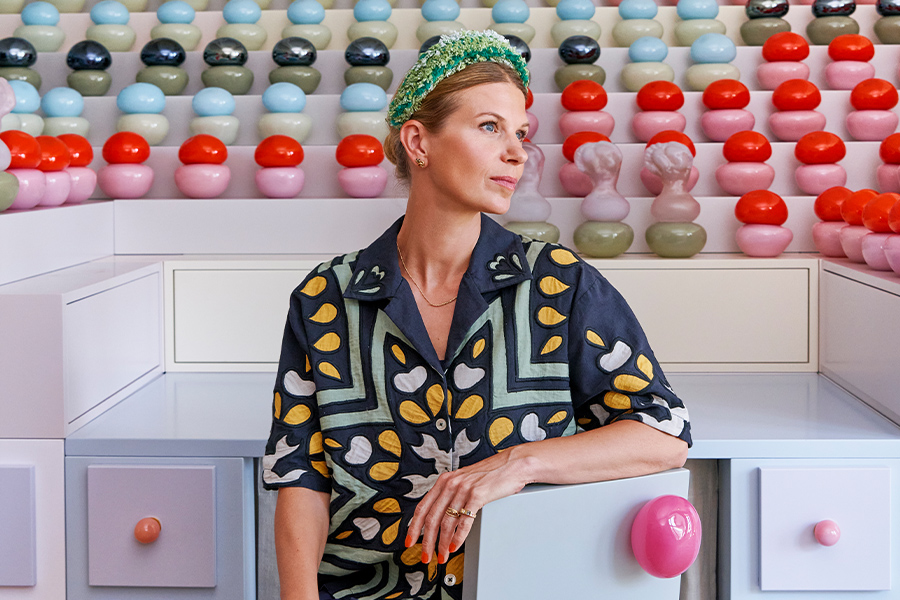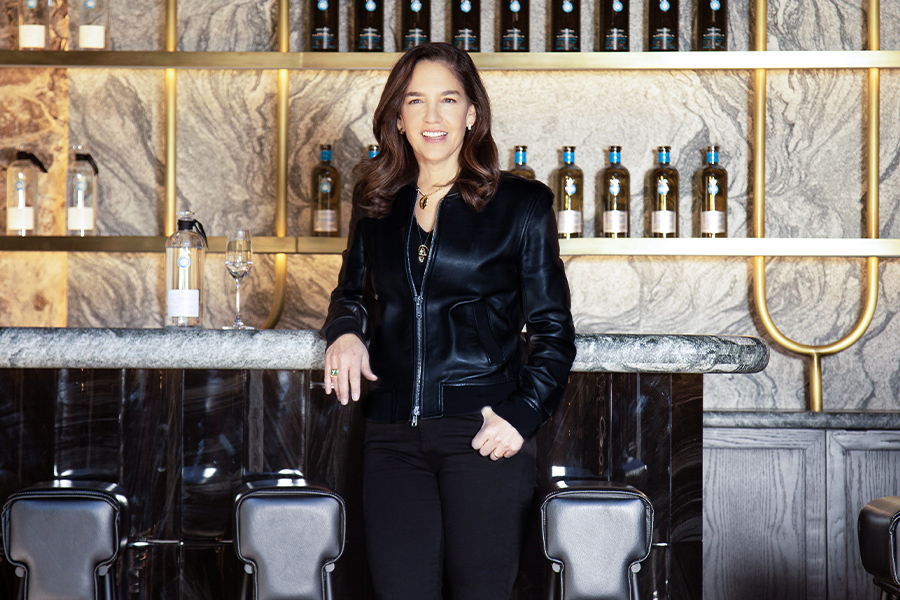Nani Marquina’s inaugural trip to India in 1994 was a pivotal moment for the Spanish designer’s namesake rug brand. Following her visits with local weavers, she developed a newfound reverence for craftsmanship and abandoned her own mechanized manufacturing process, eventually shifting production to India, Pakistan, and Nepal. “I also saw that we could help maintain the great culture and traditions of a country,” recalls Marquina. “We keep learning from ancestral techniques that we adapt to our contemporary designs.”
Marquina, who launched her career in the 1970s, “never imagined I would design rugs, as it didn’t exist as a textile specialization,” she says. Founding Barcelona-based nanimarquina in 1987, then, was a pioneering move, but not a surprising one given that her father, the late Rafael Marquina, was a trailblazing industrial designer and architect behind such creations as a non-drip oil cruet.

Haze by Begüm Cana Özgür is inspired by the harmony of colors drawn from nature
Today, nanimarquina is a thriving family business—Nani’s daughter Maria Piera is managing director and her sister Carlota is art director—that showcases a range of handwoven, eco-conscious indoor and outdoor rugs. Tres, for example, is composed of three separate panels highlighting different proportions of wool, felt, and cotton, that Marquina dreamed up with Elisa Padrón.
Such collaborations with fellow designers—including Ilse Crawford, Jaime Hayon, and Neri&Hu—are plentiful. Take the Doblecara collection by Ronan Bouroullec, which nanimarquina released earlier this year. The “carpet with rhythm and simplicity,” as Marquina puts it, is defined by discontinuous strokes.
Fashioned from recycled rubber bicycle tubes, Bicicleta was one of nanimarquina’s first projects to explore the lifecycle of a rug and symbolizes Marquina’s commitment to sustainability. “It was something intrinsic from the beginning,” she says. In addition to protecting economies by aligning with artisans, “we have always prioritized natural fibers. Our rugs are made with care to last for a long time, so we don’t contribute to the single-use consumption trend.”
The Climate Neutral Certified company also addresses social issues, joining forces with Care & Fair, the carpet trade organization fighting child labor, as well as sponsoring the Amrita Vidyalayam school in Bhadohi, India. “Forty years ago, everything was within our reach and the feeling was that anything was possible,” says Marquina. “Our work was based on experimentation and innovation. Now there is a more responsible attitude in our designs.”

Vibrant rugs contrast white walls in the nanimarquina flagship showroom in New York, designed by Marquina

Doblecara by Ronan Bouroullec creates a sense of movement with subtle linear strokes
This article originally appeared in HD’s September 2023 issue.


